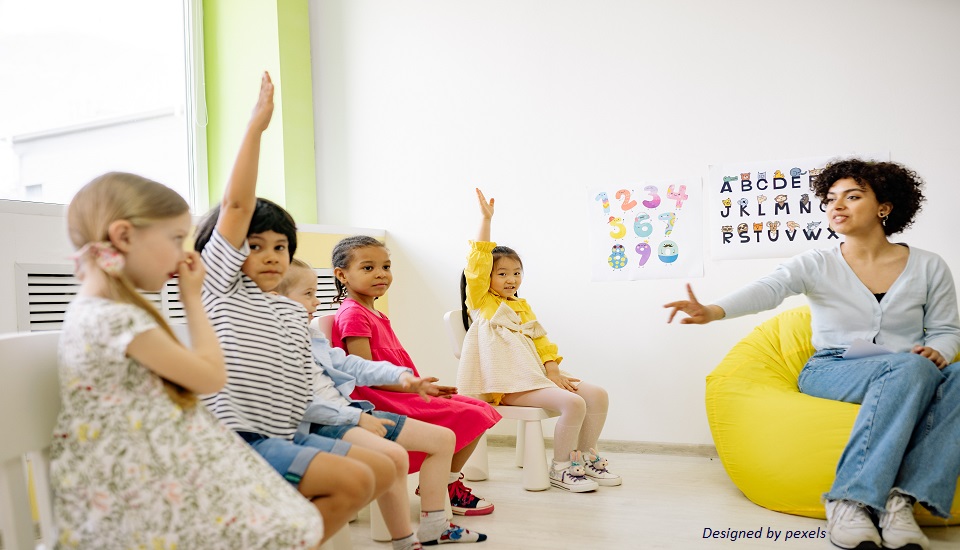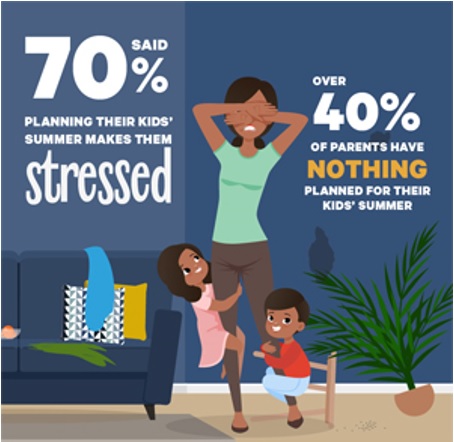6 Transition Tips For Kids To Help Them Move Into Summer Schedule Seamlessly
8th August 2023
As the sun sets on another summer, it marks the end of carefree days and heralds the return to routines and responsibilities. The transition from summer holidays to the regular grind can be challenging for both children and adults alike. One of the biggest challenges that can occur while transitioning into a summer schedule includes social interactions, changes in routines, and sleep patterns. As educators or parents, you want to ensure that your kids' transition is as smooth as possible. Here are a few ways to make the summer transition easier.
6 Tips To Make Summer Transition Easier For Kids

Sources: lifehealth.com
Summer can be a time of stress and confusion, especially for children who have unique learning needs. If you are worried about how learners are going to transition into their summer schedule, here are some ways to make the shift easier.
1. Create A Schedule For Gradual Adjustment
One of the keys to a successful transition is to start gradually adjusting your routine a week or two before the summer holidays end. If you or your children have been staying up late and waking up late during the break, start setting earlier bedtimes and waking up at the desired time progressively. Gradual changes are easier for the body to adapt to, reducing the shock of returning to the early morning routine.
A well-structured schedule can be your best friend during this period of transition. Plan your children days in advance, allocating time for work or school, leisure, exercise, and other essential activities. Having a clear schedule in place will help them establish a sense of order and ensures you don't miss out on anything crucial in the chaos of returning to daily life.
2. Plan Ahead With Conversations
An essential step to helping a learner transition into a summer schedule is to have open conversations about what they want their summer to look like. Depending on the unique needs and age of the child, these conversations can either be super detailed or pretty brief. Try to keep things fun and positive making sure the child knows what to expect.
During the summer, social events and gatherings are common, but as the holiday season winds down, people tend to be busier with their regular commitments. Avoid overloading your child’s schedule with social events right away. Instead, ease into social engagements to ensure a smoother transition.
3. Organize Workspace And Keep A Routine
For students, setting up an organized workspace is vital to kickstart the new season on the right foot. Clear away the clutter, arrange necessary materials, and make sure everything is in order. A tidy and welcoming workspace can help improve focus and productivity, making it easier to ease back into academic or work-related tasks.
Take some time to reflect on the summer holidays and all the experiences your child has had. Recap the highlights and lessons learned during this time. Based on these reflections, set realistic and achievable goals for the coming months. Having clear objectives can provide motivation and a sense of purpose as you navigate through the post-summer period.
Hey, do you follow us on Social Media? We regularly share upgraded educational content, tips, feedback and more. Check us out by clicking the profiles here - Facebook / Twitter / LinkedIn / Pinterest / Instagram / YouTube
4. Encourage Physical Activities
Exercising regularly can be a great way to regulate the sleep cycle of your child, boost their mood, and improve their overall health and well-being. During summer breaks, children tend to become more sedentary and sluggish which can affect their sleep patterns. Thus, encouraging kids to engage in physical activities like sports, swimming, etc can help them get enough exercise and also drive them to play more, outside.
If you are looking for helping your child undergo a smooth transition during summers, independent play can also be extremely beneficial. During school years they often find themselves busy with homework and school activities but during breaks, they find it hard time figuring out what they should do. In such cases engaging them in independent play such as drawing, painting, playing with legos, etc can build their imagination and creativity.
5. Set Boundaries with Technology
During the summer holidays, technology use might have been more relaxed, but as daily routines resume, it's essential to set boundaries with technology. Avoid excessive screen time, especially before bedtime, as it can interfere with the sleep quality and overall well-being of your kids.
Instead, plan mini vacations. While the long summer break may be over, it doesn't mean you can't plan some mini-vacations or weekend getaways throughout the year. Anticipating these short breaks can add excitement and help break up the monotony of the regular routine.
6. Prioritize Self-Care
Amidst the hustle and bustle of returning to daily life, you shouldn’t forget to teach the importance of self-care. Take time to understand what your child wants and set aside time for relaxation, exercise, hobbies, and activities that bring them joy. Maintaining a healthy work-life balance is crucial for overall well-being.
A positive mindset is a powerful tool during transitional periods. Encourage your child to embrace the changes with a positive outlook, focusing on the new opportunities and experiences that the end of summer brings. Embracing change can make the transition less daunting and more exciting.
Transition Doesn’t Always Have To Be Scary
The end of the summer holidays signifies a return to routines and responsibilities, which can be both exciting and challenging. By implementing these transition tips, your child can ease back into daily life with greater ease and productivity.
However, if you are in search of innovative activities or ideas to help your child settle in with fun, consider pursuing an International Teaching Diploma Course. Gradual adjustments, organization, communication, and self-care are essential elements for a smooth post-summer transition. With these strategies in place, you can make the most of the end-of-summer holidays and ensure a successful start to the upcoming season.
We believe education should be accessible for everyone. That’s why we don’t charge for our blogs. Find the right course that will help you in your career with us, contact us at - 1800-212-6400. You can mail us at act@asiancollegeofteachers.com.
Written By : Sanjana
Leave a Reply

